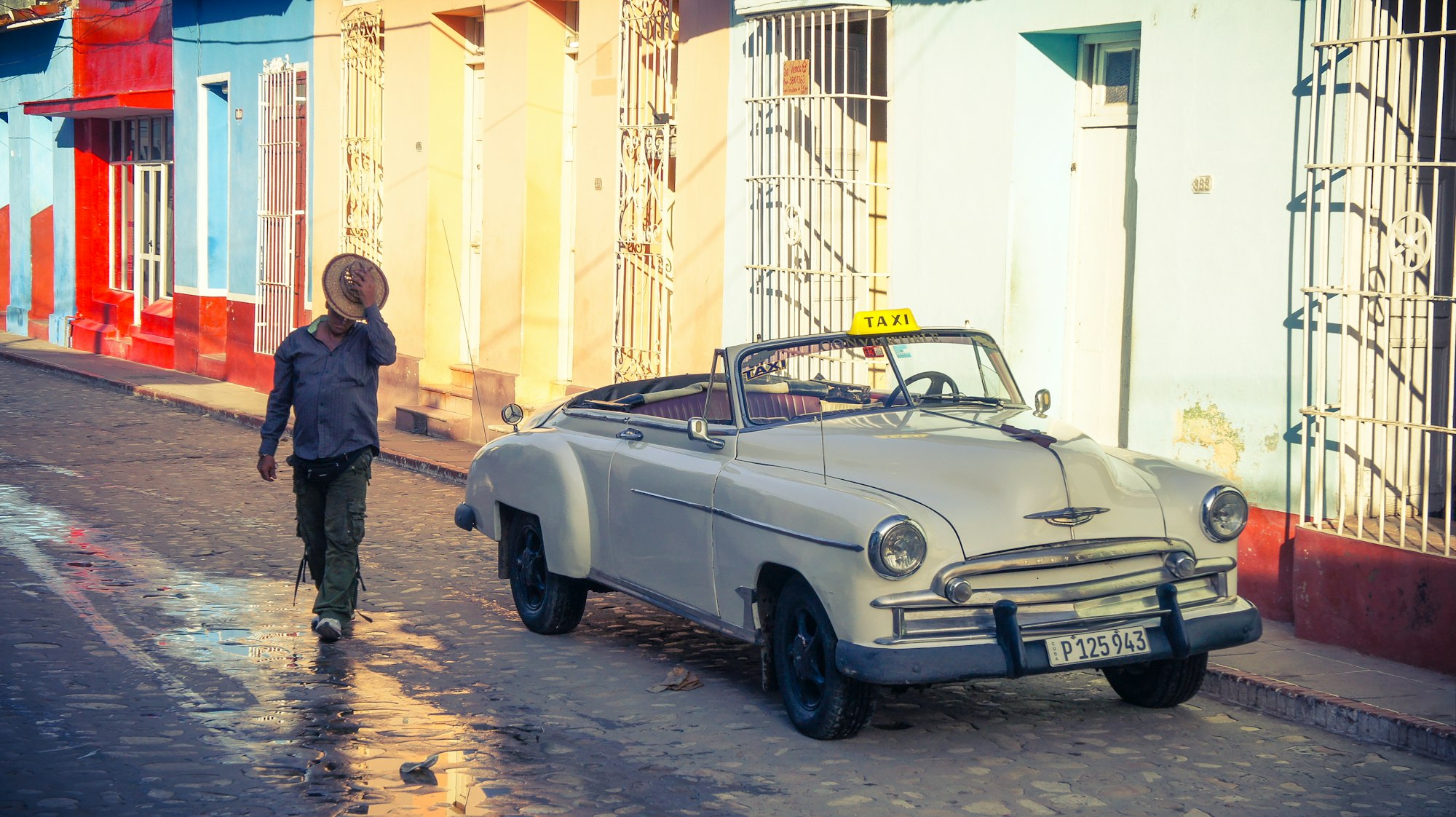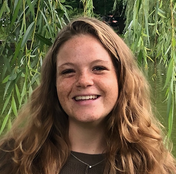There are 68 languages spoken in Kenya. Most people speak Swahili or English and at least one of many local mother tongues. In the streets of Nairobi, it is not uncommon to hear greetings in multitudes of different languages, from “hey, how are you?” in English to “jambo, habari gani?” in Swahili, including “wĩmwega, ũhana atĩa?” in Kikuyu. Kenyans speak and understand many different languages—Spanish, however, is not usually one of them.
In the past few years, though, Kenyans have been hearing Spanish increasingly often, especially when seeking medical care. The introduction of a new language in Kenyan society may be surprising, but it is not a coincidence. Like many other countries in the world, Kenyans have seen Cuban doctors enter their health facilities and provide healthcare alongside their local counterparts since 2018 when the Cuban government deployed its doctors in rural, underserved areas in severe need of specialized medics. With this arrival, local clinics were able to provide quality specialized healthcare to patients in need instead of referring them to urban hospitals. The doctors generally adapted well to their new environments, such as by learning local dialects, and their presence led to improved access to specialised medical care and reduced congestion in urban referral hospitals, or hospitals that provide specialized care after referral from local primary care providers.
However, as a new, smaller wave of Cuban doctors entered Kenya to help address the COVID-19 pandemic, questions arose about the conditions under which these foreign medics had been working on Kenyan soil. Kenya and Cuba struck a deal in 2018 to bring in 100 Cuban doctors to Kenya’s underserved rural areas. However, all details and logistics remained confidential, including the doctors’ salaries and how much money the Cuban government received for the deal. Amidst rising public scrutiny around the 2018 deal, Kenya’s major news outlet The Nation led a thorough investigation on the materialization of this transaction and on the benefits granted to Cuban doctors to keep them in Kenya for the past two years.
The Kenya-Cuba Doctors Deal
In 2005, Cuban President Fidel Castro established The Henry Reeve Medical Brigade, nicknamed the “White Coat Army,” to respond to emergencies and serious epidemics around the world. Doctors from the Brigade are trained in specialized medicine and infectious disease containment. So, in July 2020, 20 Cuban doctors from the Brigade arrived in Kenya to help manage the coronavirus pandemic. They came to join the 100 other Cuban doctors who had been working on Kenyan soil for the past two years since Kenya and Cuba had agreed on the Doctors Deal.

The relationship between Kenya and Cuba was instigated in 2016 when then-President Uhuru Kenyatta launched a diplomatic push to increase cooperation with Havana and advance “shared collaboration interests.” Specifically, Kenyatta was interested in Cuba’s health expertise. Shortly after the Kenyan administration had set up an embassy in Havana, both governments began talks over a new partnership in the field of health. These discussions originally revolved around “investment opportunities for the manufacture of vaccines, ARVs [antiretroviral drugs], medical gases and antimalarial medicines,” and there was no mention of bringing in physicians. A year later, however, Kenyan Cabinet Secretary Sicily Kariuki signed a deal to import 100 doctors to Kenyan rural areas. The deal was beneficial for both countries; while Cuba would be generously remunerated for each doctor—a welcome financial support for a country with large public deficits—Kenya would compensate for its chronic shortage of healthcare professionals with highly trained doctors in oncology, nephrology, and infectious and tropical diseases.
It is true that Kenya has an insufficient amount of licensed doctors. While the World Health Organization recommends one physician per 1,000 people, Kenya has only 9,000 doctors to take care of 47.5 million Kenyans, leaving one doctor responsible for more than 5,000 people. The Kenya Medical Practitioners and Dentists Council, which licenses Kenyan doctors, blames this shortage on two related phenomena: brain drain—the emigration of highly skilled or trained professionals—and the government’s failure to create incentives for doctors to practice within the country.
The lack of government support for Kenyan doctors is key to understanding the tensions brought about by the Kenya-Cuba doctors deal, specifically among medical professionals. As part of the deal, Kenya committed to pay an estimated KES Sh1 million (US$13,996.85) per month for each of the Cuban doctors, equivalent to the pay of five Kenyan medical professionals. The amount includes monthly stipends paid to the doctors and expenses for accommodation, such as rent, furniture, and utilities, but most of the total amount goes to the Cuban government as payment. The Kenyan government also covers health insurance and malpractice insurance for all Cuban doctors. These measures stand in stark contrast with the way Kenyan doctors are treated. Beyond receiving much lower salaries, Kenyan medical professionals do not benefit from free health or malpractice insurance, which can be very expensive. These out-of-pocket expenses with no subsidy from the government make it difficult to survive on low wages, providing little incentive for Kenyan doctors to keep (or start) practicing.

The public indignation following the exposure of these details in 2020 stemmed from the realization of how unfairly native doctors were treated despite the government clearly having the resources to treat them better all along. Many Kenyans were outraged that the resources spent towards importing foreign doctors had not been directed towards better training and incentives for Kenyan-born medical professionals instead. Still, the Kenyan government has been extremely appreciative of the work of Cuban doctors during the COVID-19 pandemic. Health Cabinet Secretary Mutahi Kagwe commended them for “doing a fantastic job, especially at this time when we need experienced doctors to deal with COVID-19 as well as our usual cases.”
A Worldwide Phenomenon
Kenya is not the only country that has been hosting doctors from Cuba for several years. Even before the COVID-19 pandemic, medics from the Cuban Henry Reeve Medical Brigade were present in dozens of developing countries throughout the world. And, unlike in Kenya, where their presence has resulted in controversy, these doctors are overwhelmingly praised for their work. More recently, since the beginning of the pandemic, Cuban medics have been deployed in nearly 40 countries across five continents. Some examples include Togo, South Africa, and Jamaica, the latter of which has welcomed 137 Cuban doctors since March in addition to the 296 already in the country. Cuban doctors even started working in wealthy countries such as Andorra and Italy as well as in countries that are not politically aligned with Cuba, like Peru. While Cuba has been providing this service to some countries for free during the pandemic, other recipient countries are paying, which is helpful for Cuba to support its exorbitant public deficit and food shortages during the pandemic.
Authorities from these countries have openly praised these doctors’ work. In South Africa, the Head of Health for the Eastern Cape declared that Cuban doctors had made “a very impactful intervention, at low cost, in low resource areas.” The head of cooperation at Togo’s foreign ministry, Charles Azilan, was grateful that “as scientific and medical circles groped in the dark, Cuban medicine, strong from past experiences, brought appropriate answers.” Indeed, the Brigade gained much experience with the management of infectious diseases when they helped fight cholera in Haiti and Ebola in West Africa. Ralph Gonsalves, Prime Minister of Saint Vincent and the Grenadines, called the medics “lifesavers” who constituted “the backbone of the response to the pandemic.”
Diplomacy through Health Care
Medical humanitarianism is inherently linked to Cuba’s role in the international community. Since its 1959 leftist revolution, Cuba has dispatched volunteer doctors to disaster sites and disease outbreaks in the name of solidarity. After the creation of the Henry Reeve Medical Brigade in 2005, more than 7,400 volunteer Cuban health professionals were trained in medicine and infectious disease containment before being deployed throughout the world. Preceding the onset of COVID-19, they helped fight cholera in Haiti and Ebola in West Africa as well as responded to floods in Guatemala and to the 2005 earthquake in Pakistan. The Nation wrote that “medical workers are Cuba’s biggest export.” In fact, in 2018, Cuba’s medical services export program generated $6.4 billion and was Cuba’s largest source of income. The Cuban strategy is to help alleviate its massive foreign debt and public deficit by doing what it does best, producing highly trained medical professionals and exporting them wherever they are needed.

Beyond economic incentives, exporting doctors has become a diplomatic tool to increase Cuba’s soft power around the world. Humanitarian aid is essential to promoting the country’s image, and Cuba’s medical professionals have become indispensable for both responding to health crises and supporting local health services on a continuous basis. These exports are not just symbolic: Cuban doctors are highly trained in state-of-the-art medical skills and have significantly contributed to the bettering of health throughout the world. Despite little attention from Western media, the exceptional services provided by these doctors have been recognized for years, even before the coronavirus pandemic. For example, in 2014, the former Secretary-General of the United Nations Ban Ki-moon praised the brigade as “miracle workers,” who are often “the first to arrive and the last to leave.”
Nobel Peace Prize Nomination
While Cuban doctors have been working abroad for years, the increased dedication of the Brigade during the COVID-19 pandemic recently drew attention from the World Peace Council. In October 2020, the Council formally registered the candidacy of Cuban doctors for the Nobel Peace Prize, stating in a letter to the Norwegian Nobel Committee that the work of Cuban doctors during the pandemic was “the most sincere example of ... international solidarity.” Organizations and individuals around the world supported this nomination, ranging from the mayor of the small Italian town of Crema to communist organizations in many African countries. Congo’s newspaper La Prospérité beautifully stated that:
As our world had barricaded itself with selfishness, it suddenly was surprised by an altruistic and generous lifeline: a team of Cuban medics, with state-of-the-art epidemiological knowledge to fight against infectious diseases. When most countries preferred protecting their medical personnel and keeping them for themselves, these Cuban doctors volunteered their lives. … Their availability and generosity deserve to be honored.
The Cuban brigade’s extraordinary humanitarian efforts were recognized for their outstanding efficiency in the fight against COVID-19. A nomination for the Nobel Peace Prize is significant: it signals a consensus that these Cuban doctors have been exceptionally helpful and critical to their recipients. In the words of Alfred Nobel himself, the prize should go to those who have done “the best work for fraternity between nations.” The Cuban brigade does just that: it embodies fraternity and the exchange of strengths between developing countries, providing a great example of effective South-South collaboration.
South-South Collaboration
The Cuban medical initiative, regardless of underlying economic and diplomatic motives, paves the way for a new type of global cooperation. Ban Ki-moon, in a 2014 press release, thanked the doctors for “leading the way on South-South cooperation.” For generations, humanitarian aid has been tainted by the paternalistic dynamics of Western countries helping low-income nations. The concept of international aid paternalism stems from a widespread perception of donors as benefactors of the world and of recipients as unable to take care of themselves without such help. Aid paternalism has created a hierarchy that places wealthy Western nations at the top and recipients of Western aid at the bottom. Most importantly, many humanitarian initiatives have stemmed from a “we know what is best for you” mentality, leaving little room for national determination and agency. Many times, humanitarian workers are not fully qualified for the task at hand, and they end up doing more harm than good to the populations they came to help.
For example, in 1999, a popular American charity called Operation Smile was placed under scrutiny for medical malpractice. It was accused of prioritizing its public image and publicity over medical standards and patient safety. The charity, which was perceived as a stellar organization providing oral surgery to children in the developing world, was widely criticized in the countries it served, as patients faced excessive medical complications following their surgery. In addition, 16 of Operation Smile’s patients had died since the beginning of their operations. A local pediatric surgeon in Bolivia accused the organisation of conducting “surgical safaris,” describing it as “a form of neo-colonialism.” The case of Operation Smile embodies international aid paternalism, and its leaders cared more about the symbolism of their actions than about actually providing quality care to the patients they treated.
Cuba’s medical program opens the door for a different type of humanitarian aid, one that leads to true cooperation between equal nations. Cuban doctors are highly qualified, and they are not sent to host countries out of paternalistic charity. Instead, they are sent to partner countries as part of mutually beneficial deals. In the case of Kenya, the deal itself was instigated by Kenyatta. However, the doctors are highly trained and produce actual positive effects in response to health emergencies despite potentially unfair deals struck between the two governments. The doctors are educated by a nation that understands the role that a healthy population can play in a nation’s development and a nation that believes that healthcare should be a right for all. Today, the small developing country has more medical staff working in the Global South than all of the G-7 countries combined. They have traveled to Europe for the first time during the pandemic, suggesting a reversal of existing paternalistic dynamics of humanitarian aid. Cuba’s medical services abroad bring hope that new humanitarian dynamics may be on the rise, promoting empowerment for the Global South and increasing cooperation across the hemisphere.
Cover image source: EPA.





